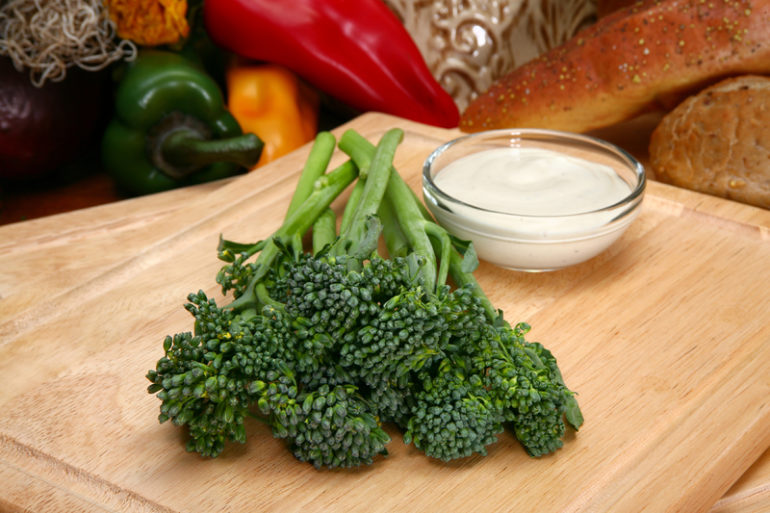The immune system: our very own biological fortress against illness and infection. If only that was the case, some will gripe. For these systems – far from protecting us – often seem to let us down, opening the floodgates to every bug doing the rounds. Many people perceive a strong immune system to be a birthright, something they are completely unable to alter. Either it is robust and hardy or as unguarded as a door left ajar. However, there are many foods which help boost the immune system. If you’re looking to upgrade your natural resistance, incorporate the following immune-enhancing ingredients into your day-to-day diet.
Before we dive headlong into specific foods, it’s worth making a note of the nutrients which help the immune system. They are: copper, iron, folate, selenium, Vitamins A, B6, B12, C and D, and zinc. However, there are many other nutrients which offer promise – Below are the 7 best foods for the immune system
Best Foods for the Immune System
Broccoli
Broccoli is regarded as one of the healthiest foods you can put on your plate. A vegetable that thoroughly deserves its ‘superfood’ tag, broccoli has many wholesome nutrients which nourish the immune system – not least vitamin C. Indeed, a single serving of broccoli delivers well over 100% of your daily recommended amount! The vegetable is also a plentiful source of vitamins A, B6, folate, selenium and iron, all of which contribute to immune health. Serve alongside meat or fish, employ in pies or quiches, or use in a hearty soup!
Probiotics
Probiotic is a bit of a buzzword in the health and wellness industry, but there’s plenty of evidence to back up the bold claims. Probiotics are so-called ‘good’ bacteria which help the body better digest and therefore utilise nutrients from food, ensuring you enjoy all the benefits from the ingredients on this list. Several studies have illustrated the tangible benefits of good bacteria, with one showing that workers who drank a daily supplement of Lactobacillus reuteri (a specific probiotic strain) took 33% fewer sick days than their non-supplementing cohorts. Good sources of probiotics include fermented foods like sauerkraut and kimchi, as well as ‘live’ yogurt, kombucha and tempeh. If opting for a supplement, go with one that contains at least 100 billion good bacteria.
Citrus fruits
When you consider the nutritional profile of citrus fruits, it’s no wonder they’re regarded as being among the healthiest immune foods. For one, they’re exceptionally high in vitamin C (160% of your RDA). They’re also brimming with antioxidants which help to fight cellular damage and lower bad cholesterol, and they actually facilitate the absorption of dietary iron. Lastly, citrus fruits contain good levels of vitamin E and folate. Research even indicates that citrus fruits can shorten the duration of the common cold!
Top Immune-Boosting Superfoods
Spinach
If you want to avoid getting sick, you’d do well to heed the old adage ‘Eat your greens.’ Spinach really is one of the best foods for the immune system. Spinach, like broccoli, is a leafy green with multiple benefits stemming from its generous vitamin C content. It’s also rich in beta-carotene, an antioxidant which acts as a precursor to active vitamin A. Beta-carotene is especially useful for lowering levels of inflammation in the body and also combating oxidative stress. Oh, and we should probably mention spinach’s vitamin K content: an important nutrient for blood coagulation and bone health.
Red bell peppers
A great flu-fighting food you might want to consider is the humble red bell pepper. Why not green, orange or yellow, you may ask? Well for a start, red bell peppers contain considerably more antioxidants (quercetin, capsanthin and violaxanthin) than their varicoloured cousins. These polyphenol antioxidants may have names which sound like pharmaceutical drugs, but they’re as natural as you can get. What’s more, the nutritious red bell pepper is high in vitamin A – ounce for ounce it contains twice as much as citrus fruit – plus vitamins B6 and K, folate and potassium. Chuck them in a salad, hollow them out and stuff them with spinach and feta, or employ in a casserole: the options are endless.
Elderberry
Elderberry isn’t the easiest fruit to come by, but you’ll be richly rewarded for going the extra mile to source it. Used for centuries in traditional medicine, it is known to help alleviate nasal congestion and reduce swelling in mucous membranes, a consequence of its anti-inflammatory and anti-viral properties. There was actually a study published in 2016 which showed how elderberry supplementation could reduce the duration and symptoms of a cold among air travellers. Sip elderberry tea or juice or use elderberry syrup when you feel a cold coming on. Your immune system will thank you.
Ginger
Ginger shouldn’t be omitted from any list of immune-boosting superfoods. The popular root is chock full of beneficial chemical compounds including gingerol volatile oils which counteract inflammation and relax blood vessels. Not only that, but the root has been found to activate T-cells, vital components of the immune system which destroy virus-infected cells. A useful decongestant capable of easing throat pain, ginger can be added to fresh raw fruit/vegetable juice or sprinkled fresh into stir fry dishes. Others prefer using it in home baking. Either way, don’t miss out!
What About Immune Supplements?
Now that you’re up-to-date with the best foods for immune health, the onus is on you to work them into your diet. Some people might think of the aforementioned foods as bland, but with a little cleverness in the kitchen – and perhaps a well-stocked spice cupboard – you can certainly enhance the flavour.
Of course, some people might wish to augment their diet with immune supplements to give their natural defences an extra boost. If this is the case, there are a few you might want to consider. Vitamin D is a sensible choice, particularly since it’s relatively cheap. According to a study last year, vitamin D supplements could spare 3 million Brits from the cold or flu each year. In the UK, we are advised to supplement during the sun-starved autumn and winter months. If you have dark skin, wear long sleeves or spend a lot of time indoors, however, there’s an argument that you should supplement year-round.
Supplements for the Immune System
Other popular immune supplements, meanwhile, include echinacea, zinc (especially if you don’t eat meat), glutathione, vitamin C and colloidal silver.
First things first, though: sort out the diet and hope for the best. You may find that your immunity improves but could still do with extra nutrition at certain times of the year. Or perhaps it’s needed when you’re battling high levels of stress which leave you vulnerable to bugs. Either way, the option of supplementation is there.
Leaving aside the quoted benefits, our 7 best foods for the immune system will actually enhance your well being in other areas due to the dense nutrition contained therein. Eat natural and you can expect to feel energised, enjoy better sleep and have healthier skin. It’s little wonder we’re advised to eat 10 portions of fruit and veg a day!




